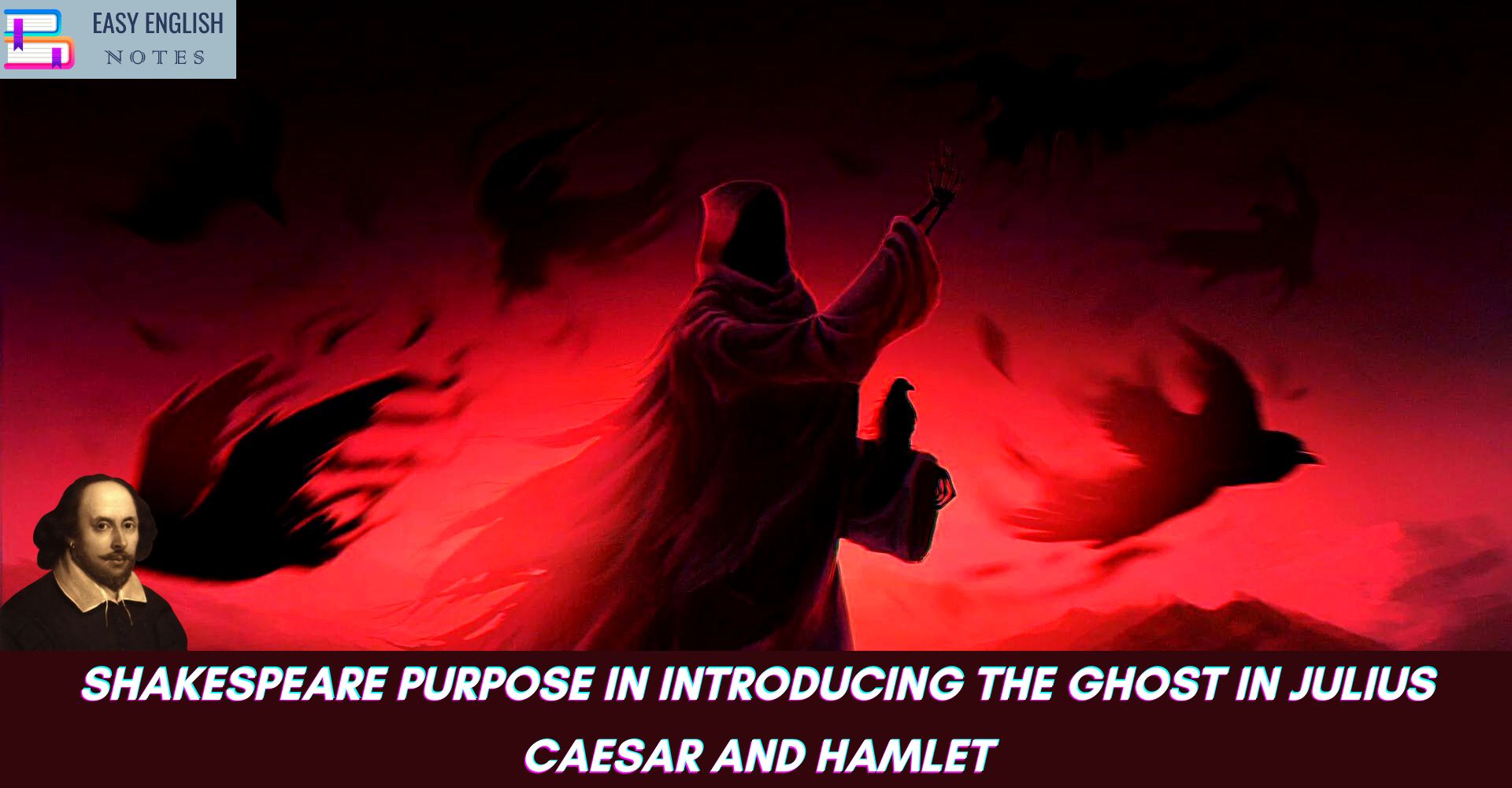Shakespeare found a hint of the appearance of some supernatural spirit to Brutus in Plutarch’s Lives of Caesar and Brutus. But Plutarch had kept it very vague calling it Brutus’s “ill angel” or “evil spirit”. Shakespeare converted it into the ghost of Caesar.
Shakespeare has not, however, introduced the ghost merely because it is found in Plutarch. Nor has he introduced it for a spectacular effect. The ghost in Julius Caesar serves a definite dramatic purpose. It is a part of Shakespeare’s dramatic machinery.
There was in Shakespeare’s day a popular belief that if a man was murdered his spirit could not find rest till revenge was taken for his murder. After Caesar’s murder Antony makes the prophecy :
“And Caesar’s spirit ranging for revenge,
With Ate by his side come hot from hell,
Shall in these confines with a monarch’s voice
Cry ‘havoc’ and let slip the dogs of war.”
Also Read :
- Compare Hamlet with Macbeth, Othello and other Tragedies
- A Short Note On The Use Of Imagery In Shakespeare’s Sonnets
- Prologue to Canterbury Tales – (Short Ques & Ans)
The ghost is nothing but Caesar’s spirit “ranging for revenge”. And in truth the ghost is a symbol of the nemesis which overtakes the conspirators. They had thought that after murdering Caesar they would be able to seize power without any difficulty. But strange troubles arise. They are strong in every way and yet their efforts are coming to nothing. They, therefore, feel that it is no moral power but the spirit of Caesar which is taking its revenge. This is the reason why the ghost terrifies Brutus at Sardis, and its reappearance at Philippi convinces him that their end has come. Thus, the ghost plays an important part in breaking the moral of the republicans.
The ghost may also be taken as the embodiment of the sorrow, fear and nervousness in the mind of Brutus. His mind is overwrought by the sorrow of Portia’s death and the fear of the ultimate collapse of their forces. Portia’s death has shaken him completely, and he goes on thinking and thinking of the powerful spirit of Caesar which seems to be taking terrible revenge. It is mid- night, the taper is dimly burning and soft music has just died out. There is no surprise if in such an atmosphere it appears to Brutus that what was passing in his mind is before him in a visual form. Thus, the ghost appears to be merely a creation of Brutus’s heated brain.
But whatever may be the reality about the ghost it certainly reminds us that the power of Caesar is not dead with his death. Far from it, his spirit, deprived of the weaknesses of the body emerges as an all powerful force and destroys all the hopes of the republicans. The ghost which terrifies Brutus at Sardis and breaks his spirit completely at Philippi represents the posthumous power of the great dictator.
The ghost serves to remind the audience that Caesar is still quite powerful. When, therefore, he says that he will appear again at Philippi, he becomes sure that doom is awaiting Brutus on that field. Just as the storm prepares us for Caesar’s murder, so the ghost prepares us for the final collapse of the conspirators.
PLEASE HELP ME TO REACH 1000 SUBSCRIBER ON MY COOKING YT CHANNEL (CLICK HERE)











